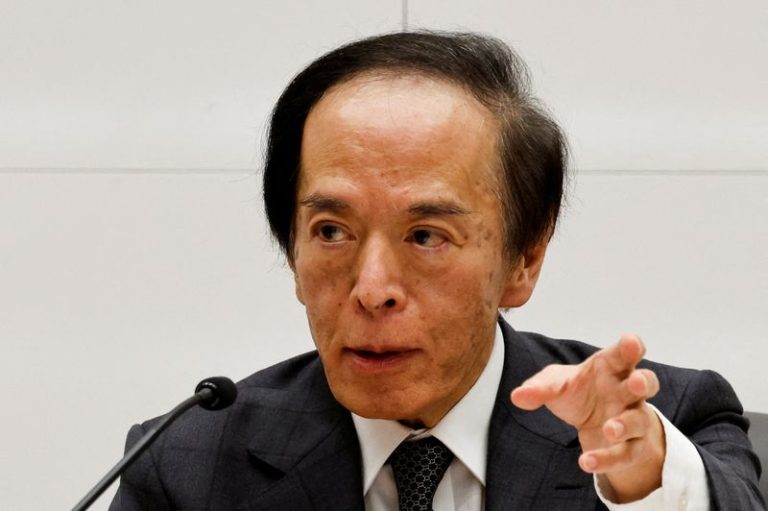By Leika Kihara
TOKYO (Reuters) -The Bank of Japan is likely to raise interest rates next week barring any market shocks when U.S. President-elect Donald Trump takes office, and maintain a pledge to keep pushing up borrowing costs if the economy continues to recover, said five sources familiar with its thinking.
However, the central bank likely won’t offer explicit guidance on the pace of future rate hikes or how far it could eventually raise them, the sources said.
Under its current guidance, the BOJ pledges to continue raising its short-term policy rate if economic and price developments move in line with its forecasts.
“For the BOJ, there’s really not much to add or change to this guidance given still very low real interest rates,” said one of the sources, a view echoed by another source.
Governor Kazuo Ueda and his deputy said earlier this week the BOJ will debate whether to raise interest rates, signaling its intention to take borrowing costs higher at the Jan. 23-24 meeting unless Trump’s inaugural speech on Monday upends markets.
As a result, markets have priced in a more than 80% chance of a hike in short-term rates from 0.25% to 0.5% next week, which would bring the BOJ’s policy rate to levels unseen since 2008.
“They’re kind of saying, without saying, we’re going to hike,” Jeffrey Young, chief executive officer of DeepMacro, said on the remarks by Ueda and deputy governor Ryozo Himino.
“You have growth at trend, the output gap pretty much closed and becoming positive, and inflation at or above target. Why keep the nominal policy rate at 25 basis points, which is deeply negative in real terms?”
Unless Trump’s speech and any executive orders he issues next week trigger severe market disruptions, the BOJ will likely proceed, said the sources, who spoke on condition of anonymity as they were not authorised to speak publicly.
“The market seems to have gotten the BOJ’s message,” said one of the sources.
“While a hike next week is certainly not a done deal, the only remaining hurdle is what Trump could say and how markets might react,” another source said.
RATES FAR FROM NEUTRAL
With a hike next week seen as a near certainty, market attention is shifting to any clues the BOJ may offer on the pace and timing of further increases.
The BOJ will likely raise its inflation forecasts in a quarterly outlook report and may highlight upside risks as a persistently weak yen keep import costs high, the sources said.
While many analysts expect the BOJ to hike rates to 0.75% in the latter half of this year, the bank likely won’t give much clues on the timing of its next move, the sources said.
The BOJ also has no plan, at least for now, to offer details on Japan’s neutral rate beyond staff estimates that show it is in a range of around -1% to 0.5% on an inflation-adjusted level.
The staff estimates mean if inflation expectations were to stabilise around the BOJ’s 2% target, the BOJ could raise its short-term rate at least to around 1% without cooling economic growth.
Ueda has refused to pin-point the exact level of Japan’s neutral rate, saying it was too hard to come up with credible estimates due to a lack of data.
Even if the BOJ were to hike rates next week, short-term rates will remain well below neutral levels, the sources said, adding it was premature to discuss any major change to its guidance on the future policy path.
“Given so much uncertainty on the outlook, it is impossible to pre-set a clear path or pace” on future policy moves, a third source said.
The BOJ ended negative interest rates in March and raised its short-term rate target to 0.25% in July on the view Japan was on track to sustainably meet the bank’s 2% inflation target.
Ueda has signalled readiness to raise rates further if broadening wage hikes underpin consumption and allow companies to keep hiking prices not just for goods but services.

